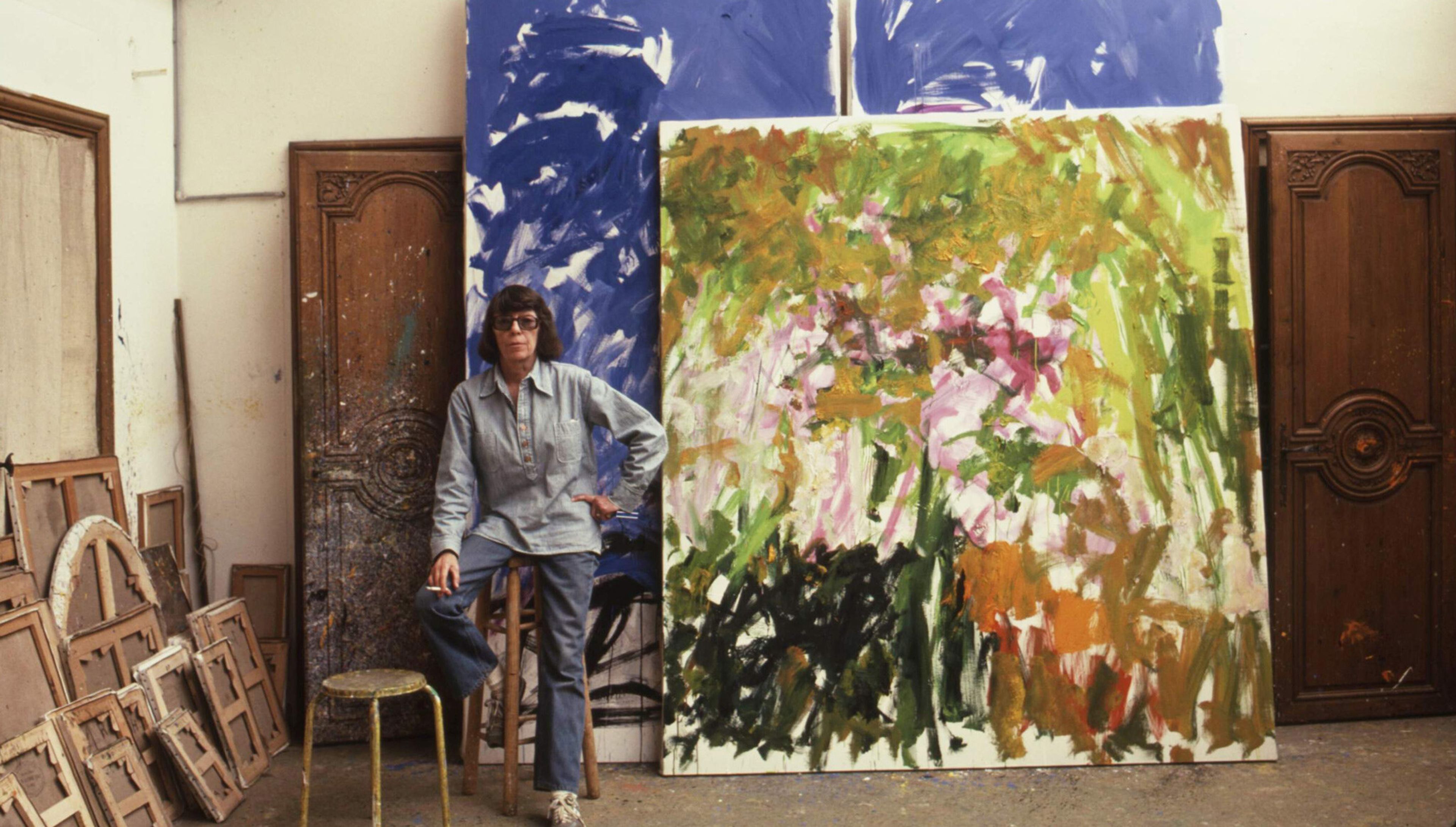Joan Mitchell Reviewed by Ariella Budick
April 2022
An exhilarating retrospective brings together works that have not been shown publicly in decades and never in a single exhibition
Joan Mitchell, who wedded heart to mind and inner wildness to pastoral lushness, is arrayed in all her complicated glory at the Baltimore Museum of Art. Almost any single painting is large enough to fill your field of vision, brimming with joy and presentiments of loss. But even if you look away or slip into another gallery, you’re still enfolded in her world. One canvas, “Belle Bête” (1973), breathes broad spans of light-filled pastel, then clenches into fists of fantastic colour. A tangle of summer green, seraphic gold, Tiepolo blue and a deep burning orange form a whirl of exuberance and moodiness, all haloed by morning mist. The painting recalls one of Bonnard’s windows, a tranquil room opening on to quivering rapture. The title, which translates as “Beautiful Beast”, hints at the welter of emotions that lie between sublimity and savagery. Even now, seven decades after her early explosions and three since her death, Mitchell remains unconscionably underrated. In the museum, several viewers expressed surprise that they’d never heard of her. She’s usually categorised as a second-generation Abstract Expressionist, a term that can be code for second-rate or second-sex. But more than a lagging member of a shortlived group, she was a painter of landscapes and still lifes that are vastly more expressive than abstract. The boys at the Cedar Tavern spent their heyday wrangling about surface and spatter; she remained grounded in the physical world, in its evanescent pleasures and ever-fading beauty. She was singular, ecstatic, peerless.
Jointly organised with the San Francisco Museum of Modern Art and masterfully co-curated by Sarah Roberts and Katy Siegel, the retrospective was originally supposed to make a stop at the Guggenheim. Instead, it will move on to the Fondation Louis Vuitton in Paris next autumn. It’s a 500-mile kind of show, worth braving a flight or the Interstate to see. Roberts and Siegel follow a rough chronology, starting with Mitchell’s elite upbringing in Chicago. Born in 1925 to cultured, literary parents, she grew up in an apartment building overlooking Lake Michigan and attended Smith College. (Bennington, her first choice, was too bohemian for her highbrow family.) She also studied at the Art Institute of Chicago’s summer school on the lake’s eastern shore. “I couldn’t wait to get up to paint,” she later recalled. “It was heavenly, I mean, really, I never felt like that, before or since . . . It was just beautiful. It was romantic, it was everything.”
